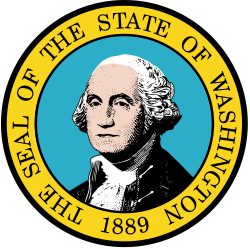November 3, 1998 | |||||||||||||||||
| |||||||||||||||||
 County results Murray: 50–60% 60–70% Smith: 50–60% | |||||||||||||||||
| |||||||||||||||||
| Elections in Washington (state) |
|---|
 |
The 1998 United States Senate election in Washington was held November 3, 1998. Incumbent Democratic U.S. Senator Patty Murray won re-election to a second term.




